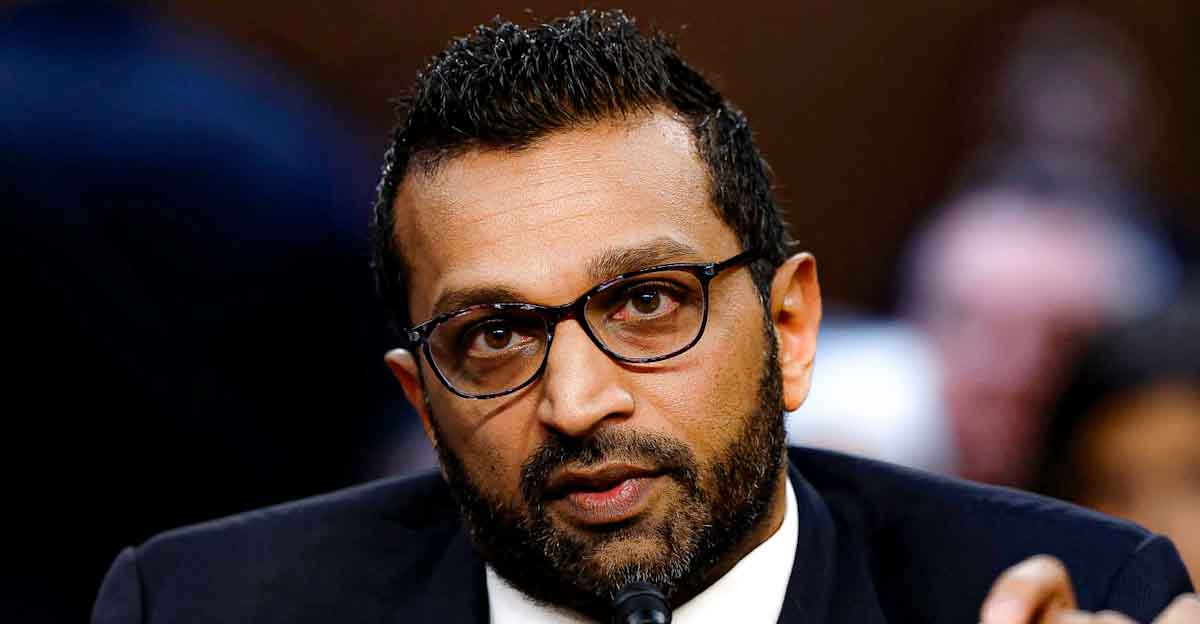On February 20, 2025, the U.S. Senate is set to cast its final vote on the confirmation of Kash Patel as the Director of the Federal Bureau of Investigation (FBI). A close ally of former President Donald Trump and a staunch critic of the FBI, Patel’s nomination has sparked intense debate across political and public spheres.
Adding to the controversy, billionaire entrepreneur Elon Musk has publicly endorsed Patel, urging his confirmation through a post on X (formerly Twitter), stating simply: “Confirm Kash.”
Confirm Kash! https://t.co/ix7rFZhHOi
— Elon Musk (@elonmusk) February 20, 2025
This endorsement has fueled discussions on the increasing influence of high-profile tech figures in political decisions, further highlighting the polarization surrounding Patel’s appointment.
The Confirmation Battle
Patel’s nomination process has been fraught with controversy. The Senate Judiciary Committee advanced his nomination with a narrow 12-10 vote along party lines, reflecting deep divisions over his fitness for the role. In the subsequent full Senate vote, a procedural step to move forward with his confirmation passed with a close 48-45 tally, further underscoring the contentious nature of his appointment.
Republican supporters argue that Patel’s leadership is crucial to reforming the FBI, which they claim has been plagued by bias and corruption in recent years. They cite his experience as a national security official and his role in exposing alleged misconduct within the intelligence community.
Conversely, Democratic opponents raise concerns over his lack of extensive law enforcement experience and his deep political affiliations, warning that his appointment could erode the FBI’s independence and impartiality. Critics also point to Patel’s prior remarks disparaging the agency, arguing that his leadership could undermine morale within the Bureau.
Elon Musk’s Endorsement and Its Impact
Elon Musk’s public backing of Patel adds another dimension to the already heated debate. Musk’s post on X, “Confirm Kash,” instantly went viral, garnering millions of views and amplifying discussions about Patel’s potential leadership.
This is not the first time Musk has used his platform to weigh in on political appointments. In recent years, he has increasingly voiced opinions on governmental affairs, endorsing candidates and policy decisions that align with his vision for technological advancement and regulatory reform.
His support for Patel appears to be rooted in his broader push against what he perceives as excessive government overreach, particularly in intelligence and law enforcement agencies.
However, Musk’s endorsement has also drawn scrutiny. Critics argue that tech moguls like Musk should not have outsized influence on government appointments, especially in agencies as critical as the FBI. Others see his support as an attempt to shape policy in ways that may benefit his businesses, particularly in areas related to government oversight and regulatory enforcement.
Ethical and Legal Concerns Surrounding Patel
Beyond his political affiliations, Patel’s financial ties have raised red flags. Reports indicate that he has received stock options worth between $1 million and $5 million from Shein’s parent company, Elite Depot, in exchange for consulting services. Shein, a major fashion retailer with ties to China, has been at the center of scrutiny over its business practices and regulatory compliance.
While Patel has stated he would divest from publicly traded assets upon confirmation, he has not pledged to divest from his Elite Depot holdings. Given the FBI’s significant role in counterintelligence operations, concerns have emerged over potential conflicts of interest, especially regarding national security implications tied to foreign business connections.
What Patel’s Leadership Could Mean for the FBI
Should Patel be confirmed, his tenure at the FBI would mark a significant shift in the agency’s leadership. His supporters envision him as a reformist who will address what they perceive as systemic issues within the Bureau, such as political bias and lack of accountability. They argue that his experience investigating intelligence abuses equips him to lead necessary reforms.
On the other hand, critics fear that his leadership could exacerbate political divisions within the FBI, compromising its neutrality. They worry that his appointment could lead to internal strife, diminished trust from the public, and challenges in cooperation with other law enforcement agencies.
Politics, Power, and Public Trust
Patel’s confirmation fight is emblematic of broader tensions within American governance, where political affiliations increasingly dictate support or opposition to key appointments. The involvement of influential figures like Musk underscores how private sector leaders are playing an expanding role in shaping political outcomes.
Regardless of the outcome, the decision to appoint Patel as FBI Director will have long-term implications, not just for the agency itself, but for the public’s perception of law enforcement, governmental oversight, and the role of technology moguls in political discourse.
As the Senate vote approaches, all eyes remain on Capitol Hill. Will Kash Patel secure the confirmation, or will opposition forces manage to block his path? Whatever the result, this moment serves as yet another chapter in the evolving narrative of power, politics, and influence in America.
